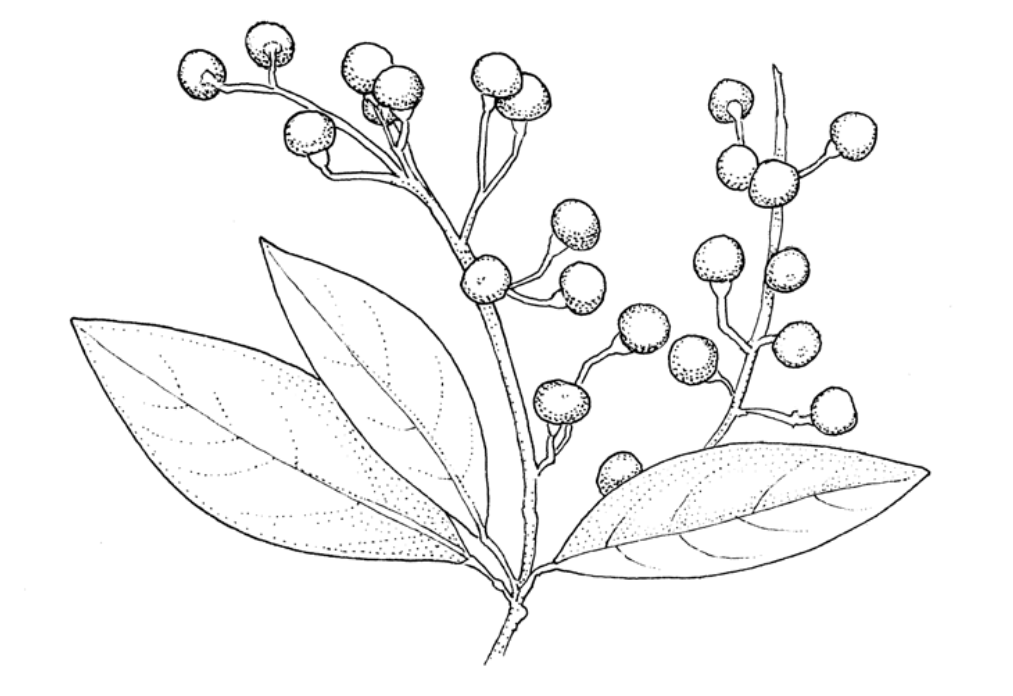Posted by Peter Holmes, LAc, MH on Mar 8th 2022
May Chang Essential Oil
May Chang Essential Oil
The aromatic mountain or pheasant pepper tree in the laurel family is native to Taiwan, South China and Indonesia. Its lemony, spicy berries that yield a peppery spice in traditional cooking, especially by the Atayal aboriginal tribe in Taiwan. The berries’ distilled essential oil is used in huge amounts in the soft drink and perfume industry for its citral content. Today, it has become the significant aromatic remedy known in essential oil therapy circles as May chang.
The Origination of the Name 'May Chang'
According to our personal research in South China, the English name ‘May chang’ was coined by a Chinese person as a derivation of its Cantonese name, Myu Tsam Fa, which literally means ‘May (the month) Tsam (a surname) flower.’ Clusters of the tree’s snow-white blossoms do in fact flower abundantly in spring. They may well embody the instinctive forces of renewal that begin stirring at that time of year.

The Many Beneficial Properties of May Chang
By stimulating the pathways of elimination through the capillaries, lymphatics, kidneys and bladder, May chang essential oil exerts a good systemic detoxicant action on both metabolic and microbial toxins. The theme of spring cleansing is apparent here. Swollen glands and fibrocystic breasts are just two conditions that respond brilliantly to its decongestant effect, thereby reducing swelling and breaking up nodules. On a microbial level, with its high citral content, May chang is able to reduce any viral, fungal or bacterial load that may be present and is therefore clinically especially valuable for the tail-end of bacterial infections when mobilizing toxins becomes a high priority.
With infections presenting high fever, pain and agitation, May chang is invaluable not only for its anti-infective/anti-microbial actions but also for its ability to clear heat and reduce restlessness and pain. Like Lemongrass oil, this aromatic has excellent antipyretic and anti-inflammatory properties for treating acute hot conditions, wherever they may be found, and whether systemic or local. Acute inflammatory conditions of many kinds, especially arthritic, can thereby be helped.
On the axis of the nervous system, May chang when absorbed acts as a good relaxant with ensuing nervous sedative and vasodilatant actions. It treats the individual with tense, hypertonic conditions that tend to heat and involve spasms, pain and inflammation, including those affecting the cardiovascular, neuromuscular and digestive system. The berries are traditionally brewed into a decoction for gastric and abdominal pain. Today, the analgesic, spasmolytic oil is appropriate for a broad range of spasmodic and inflammatory conditions of the digestive tract.
There is speculation as to a possible oestrogenic action in this oil from the citral, which has shown activity of this kind (Harris 2006). The same goes for a possible antitumoral effect, which may result from the citral and geranial in concert. Before any definite conclusions can be reached about these two actions, however, we still await the results of supportive clinical evidence.
Interestingly, May chang oil acts as an emotional detoxifier as much as a physiological one. When used by inhalation, its powerful fresh-lemony, green aroma qualities rival those of Lemon verbena. Its effect on the psyche is expansive and clarifying. Working through the prefrontal cortex, May chang not only promotes focus and alertness like the fresh-pungent oils, but in a spring-energy surge toward the future, helps create optimism, vision and foresight where there is pessimism, negative thinking and loss of vision. It is impossible even to remain in a posture of common postmodern cynicism while inhaling this radically uplifting oil!
In tandem with its energy of springtime renewal, May chang’s green aromatic quality also tells us about its potential for emotional transformation – another facet of its action that makes it instantly attractive. Acting somewhat like an upgraded Blue tansy, it can help us in letting go of negative, distressed feelings that deep down we truly know need to be discarded. Its gift? The open space of potentiality for fresh, positive experiences, for feelings we never knew existed. On a larger cultural scale, like many another lemony-green aromatic, May chang is poised as a key oil for guiding us from cynicism to optimism and for helping clarify our vision for moving with positivity toward the future.
FDA Compliance: The information on this website has not been evaluated by the Food & Drug Administration or any other medical body. We do not aim to diagnose, treat, cure or prevent any illness or disease. Information we share is for educational purposes only. You must consult your doctor (or other qualified health professional) before acting on any content on this website, especially if you are pregnant, nursing, taking medication or have a medical condition.
